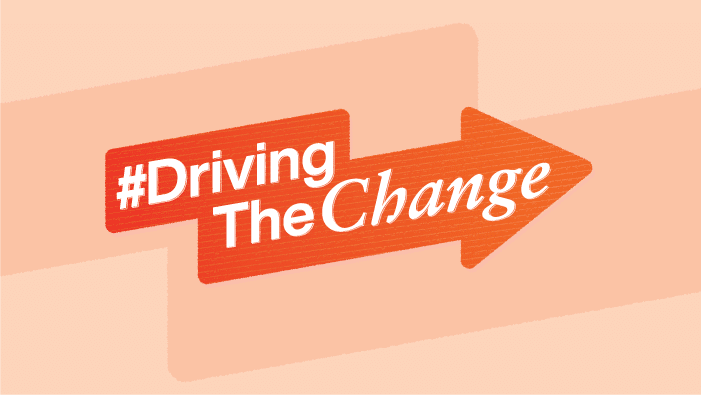Listen to this blog
Marketing is important for businesses to grow as it increases awareness, boosts revenue, and builds strong brand identities. It involves understanding your target market, creating personalized value propositions, and planning engaging experiences to foster client loyalty.
Understanding marketing for a service or product is essential, as every product or service has its set of target customers. To prosper in the marketing field, it is essential to understand various roles and responsibilities, as well as available marketing career paths.
Understanding the marketing domain
Marketing aims to connect customers with the right products or services, convince them that they’re worth investing in, build brand loyalty, and boost sales. It involves understanding the target market’s wants and aspirations and producing content that addresses them. The scope of marketing is broad, and a single method is not enough to reach all customers worldwide. Therefore, both traditional and digital marketing are required to reach a wide audience.
Importance of marketing
- Business Growth: Marketing helps understand the target audience, enabling businesses to make strategic decisions that lead to business growth and customer acquisition.
- Brand Awareness: Marketing significantly creates and maintains a positive brand image, shaping people’s perceptions of a business. Successful campaigns create brand advocates and loyal customers, increasing revenues.
Key marketing roles and their responsibilities
Marketing manager
Marketing managers are required to oversee campaigns, create consumer interest, and spread the word about businesses, brands, or products. Their role is vital in building a company’s reputation, boosting revenue, and ensuring its success.
Responsibilities:
- Create comprehensive marketing plans that align with the organization’s objectives.
- Marketing managers should be financially savvy as they need to allocate budget efficiently among resources.
- Collaborate with content, design, analytics, and more departments to gather valuable information to enhance their marketing efficiency.
- Conduct thorough market research and competitor analysis to understand current trends, client preferences, and purchasing patterns.
- Analyze marketing campaigns, track set metrics, assess strengths and weaknesses, and report on marketing campaign performance.
Digital marketing specialist
Digital marketing specialists are in charge of creating and implementing online marketing plans to advertise a company’s goods or services using digital channels, such as social media, web analytics, email marketing, and search engine optimization.
Responsibilities:
- Digital marketing specialists are responsible for managing online campaigns (SEO, SEM, PPC) to drive business sales.
- They need to be well-versed in social media marketing and management.
- Responsible for making engaging online content, including blogs, videos, tutorials, and more.
- Manage and write copies for email marketing.
- Track and analyze digital performance metrics, such as revenue, pay-per-click, and more – weekly or monthly.
Content marketer
Organizations require a content marketer to create, produce, and distribute high-quality content that aligns with their core values, culture, and strategy. This ensures that the content marketing strategy is effective and achieves its objectives.
Responsibilities:
- Produce engaging content by working together with design and content teams.
- Make an editorial calendar, assign duties, and ensure that due dates are adhered to.
- Responsible for writing relevant and engaging blog posts, articles, and social media content to reach the audience.
- Collaborate with designers and videographers to ensure the content is presented in the way it’s meant to be.
- Track, measure, and analyze content performance across all platforms and adjust strategies accordingly.
Market research analyst
Market research analysts analyze customer, competitor, and industry data to aid decision-making, identify market patterns, and enhance competitiveness.
Responsibilities:
- Conduct market research on customers, competitors, and more to identify trends and opportunities.
- Offer advice on how to design, promote, and package products by gathering and analyzing data on consumers and competitors.
- Based on the data, prepare reports and present findings to the stakeholders.
- Use insights to constantly refine the marketing strategy.
Brand manager
Brand managers are responsible for managing a broad range of commercial operations, such as product creation, online and offline promotions, and market research.
Responsibilities:
- Identify how the brand is currently positioned in the market and accordingly develop and maintain brand identity.
- Ensure the brand conveys the same message to the audience across all marketing channels.
- Create brand campaigns that align with customer requirements and the company’s goals.
- Monitor how the brand is perceived by the audience and make adjustments accordingly.
Social media manager
A social media manager manages an organization’s social media marketing initiatives. They are in charge of keeping clients informed about their plans and ensuring their vision is realized on social media platforms.
Responsibilities:
- Responsible for creating and curating engaging and relevant content for social media platforms such as Instagram, LinkedIn, and so on.
- Responsible for engaging with followers, prompting and responding to comments, and managing community interactions regularly.
- Monitor social media trends and analytics and make informed decisions accordingly.
- Run social media advertising campaigns using relevant strategies, goals, content, teams, and more.
- Collaborate with other marketing team members to create fresh and attractive content.
Emerging Roles in Marketing
a. Influencer Marketing Manager
An influencer marketing manager manages brand-influencer collaborations on social media. They gather brand-advocate partners, handle communication, and collaborate with the marketing team to maximize influencer campaigns’ effectiveness.
Responsibilities:
- Responsible for identifying and collaborating with potential influencers on different media.
- Manage influencer relationships and negotiate contracts and deliverables.
- Develop influencer marketing strategies as per brand goals, values, and guidelines.
- Manage the budget timeline and resources for each campaign.
- Track and analyze campaign performance, reports, and ROI.
b. Marketing Automation Specialist
A marketing automation specialist utilizes automation technologies to optimize marketing operations, combining technical proficiency and marketing knowledge to enhance lead generation, email campaigns, and outbound marketing.
Responsibilities:
- Select, implement, and manage marketing automation tools for campaigns.
- Create automated marketing workflows that guide leads through the sales funnel.
- Personalize marketing communications to send targeted and precise messages to the audience.
- Analyze automation performance and ROI and conduct A/B testing to enhance campaign performance and boost sales.
Skills Required for Marketing Professionals
To work in the positions mentioned above, you must have or learn certain skills.
a. Analytical Skills
Marketing experts need analytical abilities to understand client needs and trends. By analyzing data from social media advertising, they can identify reasons for client inaction, provide customized product suggestions, and make data-driven decisions.
b. Creativity
Marketing professions require creativity to refine ideas and reach new and existing clients. With creativity, you can create innovative videos and find new applications or tools to monitor client interaction.
c. Communication Skills
Effective communication is the foundation of marketing strategies, enabling marketers to create persuasive, captivating, and convincing communications that are crucial for cooperation, customer service, and dispute resolution.
d. Technical Skills
Marketing roles require proficiency in the technological marketing environment, especially marketing automation. Advanced tools like Google Analytics, Google Search Console, and MetaSuite can help manage projects, place advertisements, collaborate with teams, share content, track user activity, and generate qualified sales leads.
Career Path and Growth Opportunities
a. Entry-Level Positions
- Social Media Assistant: Their role is to support social media managers in delivering marketing campaigns across all social media platforms. This involves tracking results, interacting with followers, and so on. With this expertise, social media assistants can further land a managerial role or start their own venture.
- Marketing Coordinator: Marketing coordinators coordinate teams, support various campaigns, create content, conduct research, and monitor campaign performance.
b. Mid-Level Positions
- Digital Brand Manager: Digital brand managers create images, films, infographics, logos, and other visual content that contribute to your brand’s style and narrative strength.
- SEO Specialist: They are responsible for optimizing website content to improve search engine rankings.
c. Senior-Level Positions
- Chief Marketing Officer: A CMO is in charge of a company’s whole marketing plan, which includes advertising, market research, and brand management.
- Vice President of Marketing: This senior professional closely collaborates with the CMO, frequently participating in strategic planning and directing company-wide marketing campaigns.
Mastering Marketing with MAHE’s MBA
MAHE’s MBA program in marketing is intended to provide students with the academic understanding and practical skills necessary for a prosperous career. The program’s extensive curriculum features experienced teachers and strong industry ties. The program’s carefully planned structure ensures that graduates are equipped to handle the complex environment of today’s marketing.
Conclusion
The foundation of any successful company is marketing. It aids in increasing brand recognition and generating fascinating discussions about the brand. These marketing career paths offer a multitude of roles, each with distinct responsibilities that contribute to the overarching goal of driving business success through effective market engagement. From strategic planning and brand management to digital marketing and market research, professionals in this field must be adept at both creative and analytical thinking. Thus, obtaining a marketing MBA degree or a certificate in a particular field opens the doors to a plethora of careers in marketing.
Become future-ready with our online MBA program for working professionals

















